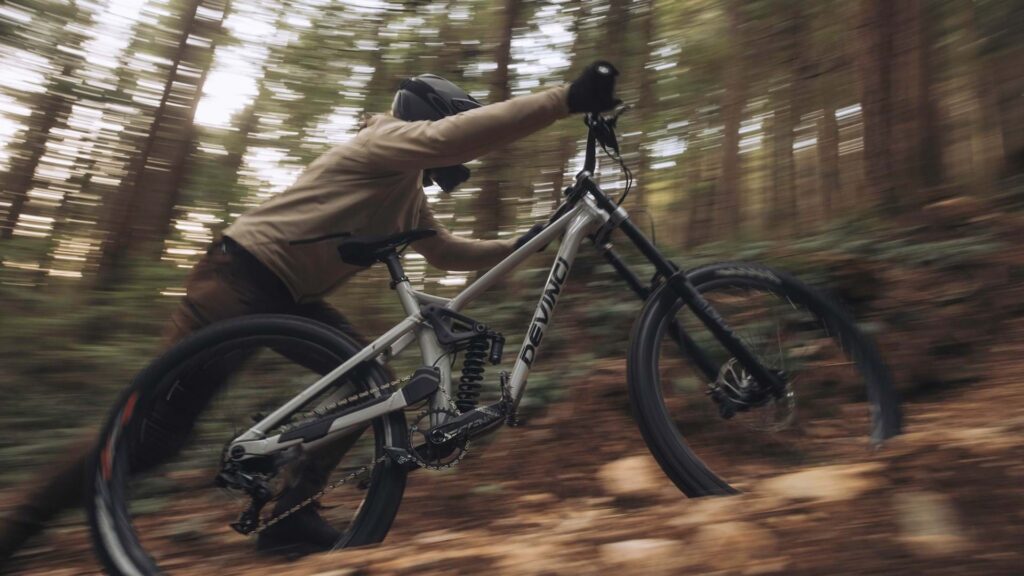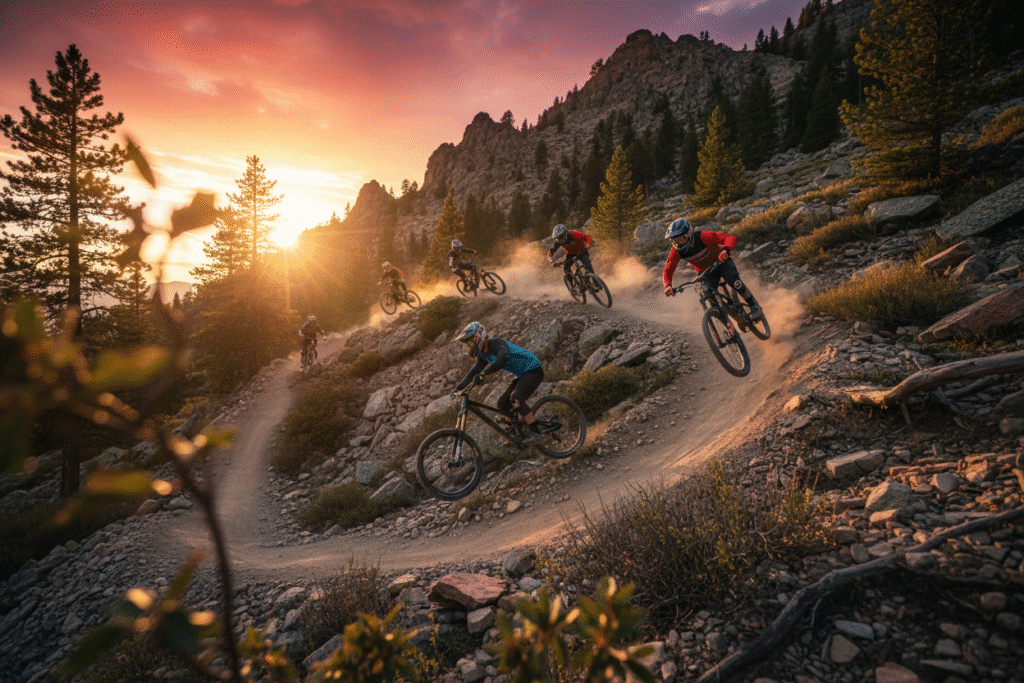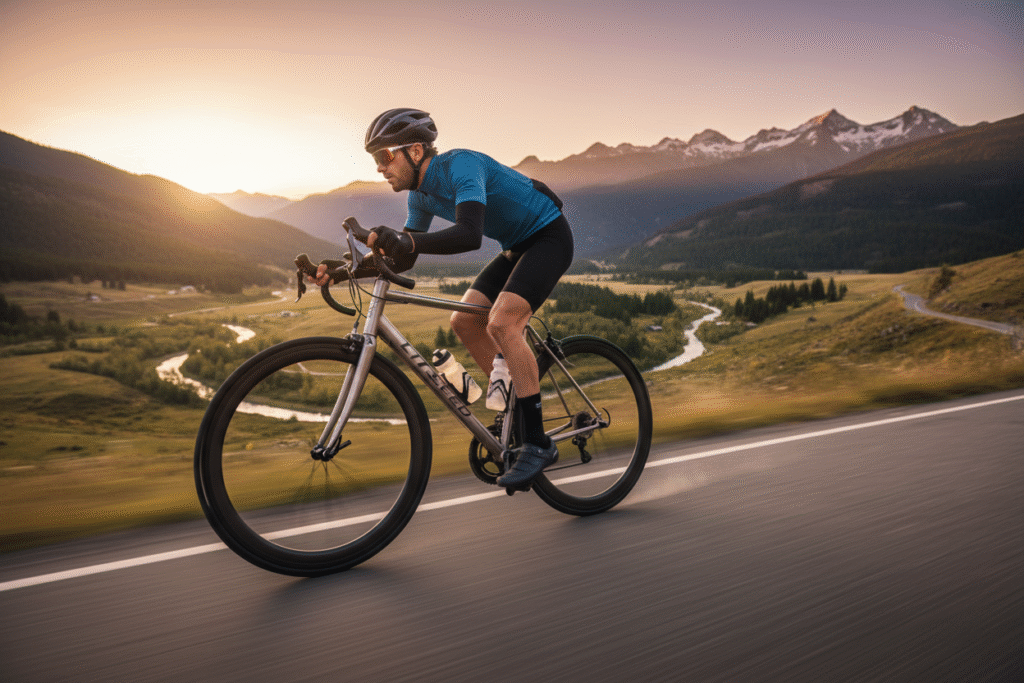Canyon Bicycles has carved out a distinct position in the global cycling world by delivering pro-level performance at prices that consistently undercut major competitors. Their formula hinges on a direct-to-consumer model—skipping retail markups entirely—and pairing that efficiency with sharp German engineering, clean industrial design, and a steady stream of elite race wins. What began as a parts company in Germany has become one of the most influential premium bike brands for riders who want maximum performance without the traditional shop-floor premium.
For cyclists comparing Canyon to the long-established giants of the industry, the appeal is clear: refined carbon frames, thoughtful geometry, and race-proven platforms delivered straight to your door. The question that often follows is whether Canyon lives up to the hype. Below is a deeper look into the brand’s evolution, engineering approach, technologies, flagship bikes, and rider experience.
Shop on Amazon →A Brief History of Canyon
1985
Founded in Koblenz, Germany as Radsport Arnold, Canyon originally supplied parts rather than complete bikes.
1996
The company introduced its first Canyon-branded frames, signaling a shift toward becoming a dedicated bicycle manufacturer.
2001
Canyon adopted a full direct-to-consumer model—years before online purchasing became the norm—effectively pioneering the format for performance bikes.
2000s–2010s
Their global reach expanded rapidly as riders embraced the idea of high-end framesets and builds ordered online. Canyon’s value proposition resonated especially in road and mountain segments where lightweight carbon and refined suspension designs were traditionally very expensive.
Today
Canyon is active at every level of performance cycling: WorldTour road racing, Ironman triathlon, World Cup XC and enduro, gravel, and high-end e-bikes. Their bikes have taken numerous victories across disciplines, validating both their engineering and their distribution model.
What Makes Canyon Different?
Canyon’s identity is shaped by the combination of direct sales and German engineering discipline. Riders often choose the brand because they want more performance per dollar without compromising on frame quality or modern features.
Direct-to-consumer pricing
By eliminating the retail layer, Canyon can offer carbon layups, integrated cockpits, and top-tier drivetrains at prices that regularly come in well below Trek, Specialized, and other traditional brands.
German engineering and design
Canyon’s bikes are known for clean lines, integrated layouts, and precision manufacturing. Their frames typically feel cohesive, with stiffness, compliance, and handling tuned for their intended purpose.
Race-proven platforms
Canyon bikes regularly appear in the world’s biggest events: Tour de France stages, Ironman World Championships, and elite MTB races. This race presence influences not just marketing but the geometry, carbon shaping, and component integration across the lineup.
Wide model range
Canyon covers nearly every performance cycling niche—road, triathlon, XC, enduro, gravel, and e-bikes—allowing riders to move within the brand as interests evolve.
Popular Canyon Models
Below are the platforms that define Canyon’s identity today, spanning from high-profile race machines to versatile trail and gravel builds.
Aeroad (Aero Road Racing)
One of the most recognizable aero bikes on the planet.
- Engineered for reduced drag with deep tube shaping
- Ridden by elite pros including Mathieu van der Poel
- Known for aggressive geometry and excellent stiffness
Designed for riders who want a bike that feels responsive the moment you stand up and sprint.
Ultimate (All-Round Road)
Canyon’s classic climbing/race platform.
- Lightweight carbon with excellent stiffness-to-weight balance
- Predictable handling and comfort for long race days
- A versatile choice for riders who mix big climbs with varied terrain
Endurace (Endurance Road)
Designed with a more relaxed fit for longer miles.
- Higher stack, friendlier reach
- Compliant frame shaping
- Wider tire clearance for rough pavement
Ideal for riders who want speed without sacrificing all-day comfort.
Speedmax (Triathlon/TT)
Canyon’s flagship triathlon/time-trial bike with a long list of aerodynamic successes.
- Multiple Ironman World Championship wins
- Storage integration for fuel and hydration
- Highly adjustable cockpit
A favorite among long-distance triathletes and time-trial specialists.
Spectral (Trail MTB)
A lively, do-everything trail bike.
- Available in alloy or carbon
- Mid-travel suspension that feels playful and controlled
- Well-tuned geometry for modern trail riding
Strive (Enduro MTB)
Purpose-built for aggressive terrain and enduro racing.
- Features Canyon’s Shapeshifter system that adjusts geometry on the fly
- Stable at speed, efficient when climbing
A serious platform for riders who push steep and technical terrain.
Lux (XC MTB)
A light, efficient full-suspension platform for cross-country racing.
- World Cup pedigree
- Clean cable routing and race-focused geometry
- Prioritizes responsiveness and climbing efficiency
Neuron (All-Around MTB)
A versatile mid-travel bike for riders who want efficiency and comfort on mixed terrain.
- Balanced geometry
- Excellent for trail riders who aren’t chasing extremes
Grizl (Gravel)
A robust gravel platform aimed at adventure riders.
- Clearance for wide tires
- Capable geometry for long days and loaded setups
More rugged than the racing-oriented Grail.
E-Bikes (E-Road, E-MTB, Commuter)
Canyon’s e-bike range incorporates Bosch, Shimano, and Fazua motors.
- The Spectral:ON e-MTB is especially popular for its blend of agility and power
- E-road and commuter models extend Canyon’s focus on integrated design
Frame Technology and Innovations
Canyon’s engineering style leans toward clean integration and efficiency-driven design choices.
CF Carbon Frames
Canyon’s carbon frames often use discipline-specific layups—lighter for road, reinforced for enduro. Their bikes tend to feel stiff without being overly harsh, and the overall visual aesthetic is very precise.
Integrated Cockpits
Many road models feature one-piece bar-and-stem units that improve aerodynamics and reduce clutter. This contributes to Canyon’s distinctive “sleek” look.
Shapeshifter (Strive MTB)
An on-the-fly geometry adjustment system developed with pro riders.
- “Pedal mode” sharpens the bike’s climbing efficiency
- “Descend mode” slackens the front end for aggressive terrain
Aero Integration
Hidden cables, deep tubes, and wind-tunnel development are common across road and triathlon lines.
Direct-to-consumer design philosophy
Because Canyon controls design and distribution, they can invest more in frame complexity and integration at a given price point.
Who Canyon Bikes Are For
Canyon appeals to riders who want high-end performance and are comfortable with an online purchasing experience.
- Road racers: Aeroad and Ultimate offer genuine WorldTour performance.
- Triathletes: Speedmax is a proven race machine with extensive aerodynamic development.
- MTB riders: From XC racers (Lux) to enduro riders (Strive), Canyon covers the spectrum.
- Gravel riders: Grail for speed, Grizl for exploration.
- E-bike riders: Lightweight e-road, powerful e-MTB, and practical commuter options.
Riders looking for maximum value in the performance category—without the need for in-store fitting or ongoing dealer support—often find Canyon an ideal match.
Price Range
Canyon’s pricing reflects its efficient distribution model.
- Entry-level alloy road/MTB: $1,200–$2,000
- Mid-range carbon: $3,000–$5,000
- High-end pro builds: $7,000–$11,000+
For equivalent components and frame quality, Canyon usually lands 20–30% below Trek, Specialized, and other major brands.
Strengths of Canyon
- High-performance builds at lower prices due to direct sales
- Proven race heritage across multiple disciplines
- Clean, modern integration and carbon engineering
- Wide variety of categories and disciplines
- Streamlined online buying experience
Weaknesses of Canyon
- No traditional dealer support or in-store fitting
- Customer service varies by region
- New riders may find sizing difficult without a test ride
- Assembly out of the box requires some mechanical comfort
Canyon vs. the Competition
| Brand | Specialty | Strengths | Weaknesses |
|---|---|---|---|
| Canyon | Direct sales | Best performance-to-price ratio | No dealer network |
| Trek | Global network | Excellent support and availability | Higher pricing |
| Specialized | Broad high-end lineup | Strong innovation and fit systems | Premium pricing |
| Giant | Massive manufacturing scale | Wide range, strong value | Less boutique feel |
| Orbea | Customization | MyO paint and spec options | Smaller global footprint |
Rider Feedback
Owners frequently highlight:
- Exceptional value—frames and builds that outperform their price class
- Clean aesthetics and modern integration
- Noticeable performance improvements compared to shop-brand equivalents
Common complaints include:
- Assembly on arrival can be intimidating for new riders
- Occasional delays or difficulty reaching customer service
- Sizing confusion without a test ride
Final Thoughts on Canyon
Should You Buy a Canyon? Canyon delivers pro-level performance at prices most competitors can’t match. If you’re comfortable assembling your own bike or using a trusted mechanic, Canyon is one of the best-value brands for riders who want a serious machine without the dealer markup. However, if you value in-person service, dealer relationships, or test rides, a Trek or Specialized may be a better fit.
FAQ
Q: Are Canyon bikes really cheaper than Trek or Specialized?
Yes — equivalent builds can cost 20–30% less.
Q: How do Canyon bikes arrive?
Shipped directly to your door in their BikeGuard box, 90% assembled.
Q: Is warranty service a problem?
Canyon provides global warranty support, but claims must go through their online system, which can be slower than local dealer service.
Q: Are Canyon bikes good for beginners?
Yes — but beginners may struggle with fit and assembly compared to a dealer-supported brand.
Related Content:
- Ibis Cycles Review
- Best Road Bikes Guide
- Specialized Bikes Review
- Best Gravel Bikes Guide
- Best E-Bikes Guide
Why Trust This Review?
BestBikeBrands is built by lifelong cyclists with decades of real-world experience — in the shop, on the trail, and behind the wrench. Our goal is simple: to help riders choose the best bikes and gear with confidence, backed by expert insights and hands-on testing. Learn more about us →






